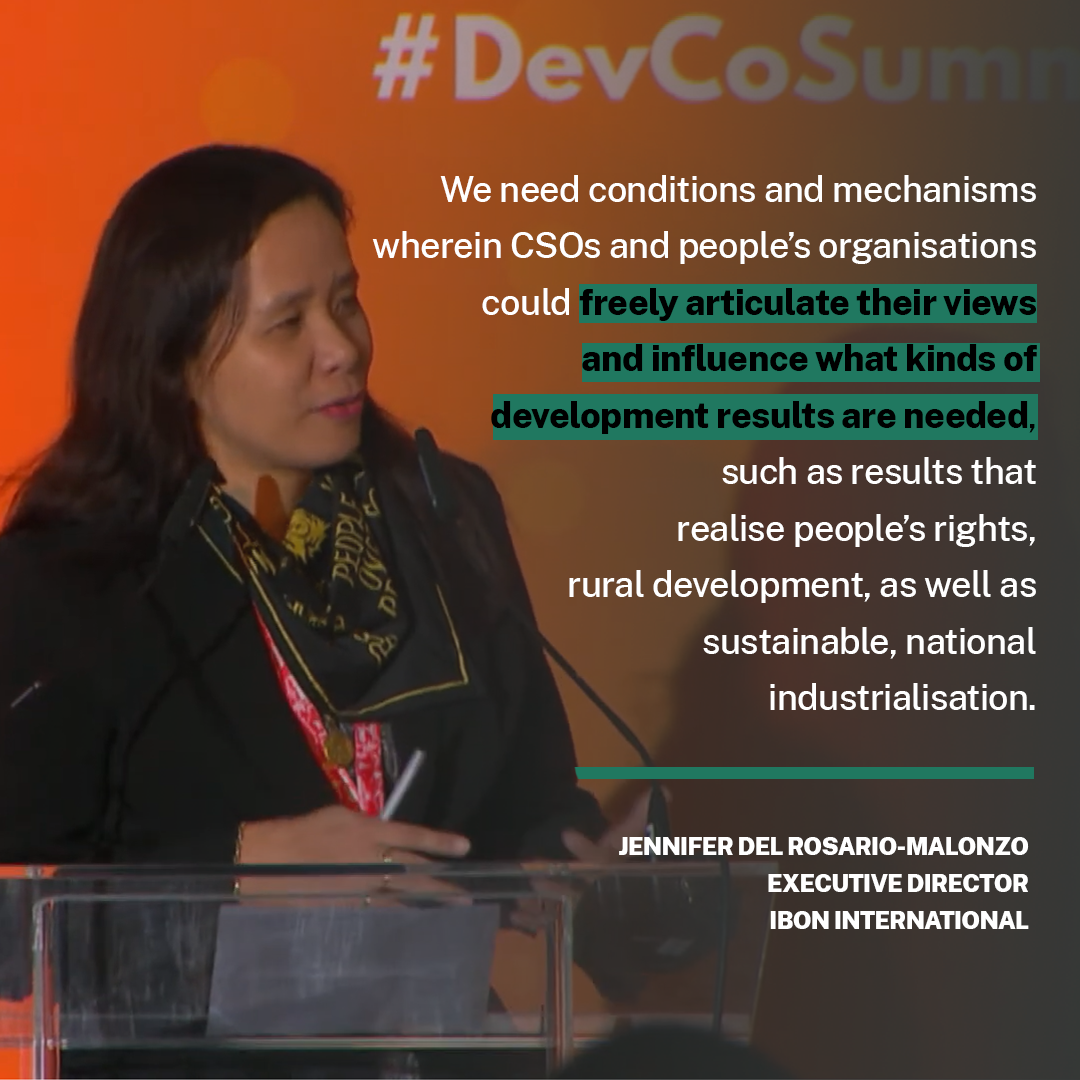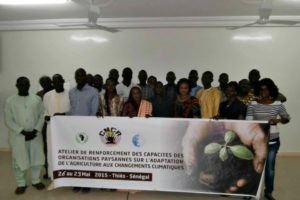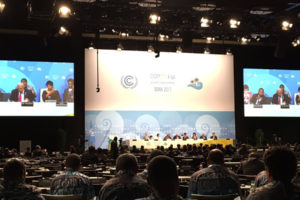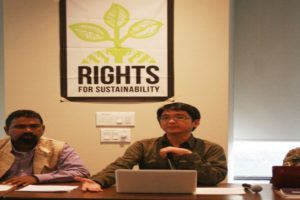IBON International Executive Director, Jennifer del Rosario-Malonzo, served as a respondent at “Fostering collective efforts for sustainable development impact: Focusing on joint results as a lever for a global recovery,” a Spotlight Session at the 2022 Effective Development Co-operation (EDC) Summit in Geneva. The EDC Summit, or the 3rd High Level Meeting of the Global Partnership for Effective Development Co-operation (GPEDC), was held from 12 to 14 December. The following text has been edited for clarity.
I am Jennifer del Rosario-Malonzo, from IBON International. I am part of the delegation of the CSO Partnership for Development Effectiveness in this Summit.
I like a point made at the beginning: that results frameworks are not technical but political. Amid all the challenges we face today, we are affirming the need for more effective results frameworks. Our event talks about results frameworks as levers for recovery. For results to be effective, this lever should be moved by the force of people’s needs on the ground and their aspirations – to be consistent with the principle of leaving no one behind.
Some challenges in data collection capacity were also pointed out earlier. We also see this in various studies. For instance, the 2022 DCF survey shows that relatively few countries track progress in untying development cooperation, track the use of development cooperation to combat inequalities, and look at gender disaggregated expenditures and results. We need to work towards improving these.
A colleague also made a point: for whom are development results? (Aside from of course, the question of for what kinds of results.) For us, genuine collective efforts and joint results require the basic role of civil society organisations (CSOs) and people’s organisations (POs) on the ground, at the country and local levels. CSOs are key actors in moving the lever to the right direction, so to speak. And we play the role of asserting that results reflect people’s needs, especially in times of crisis. We are, as development actors, also involved in delivering people’s needs.
One side of the coin of collective efforts and finding joint results is about CSOs’ right to contribute and participate in sustainable development. Earlier, we also heard about the need for more transparency and accountability, especially on the side of duty-bearers. This is the other side of the coin.
The basic premise is that duty-bearers should facilitate people’s access to information as well as the means to contribute to conditions and mechanisms wherein CSOs and POs could freely articulate their views and influence what kinds of development results are needed. For instance, results that realise people’s rights, rural development, as well as sustainable, national industrialisation.
These premises – how do we make them become actual practice? Let us not travel back to old paths, but actually address systemic inequalities and move towards sustainable, people-centred development. How do we transform the way we work in delivering results that will address real problems experienced and lived by people on the ground? How do we make sure that the effectiveness principles and commitments that we are all affirming here actually contribute to improvement of lives at the country level? These are questions that I leave with you. Thank you.
Watch the full intervention, as delivered, here, starting at 2:15:23.



